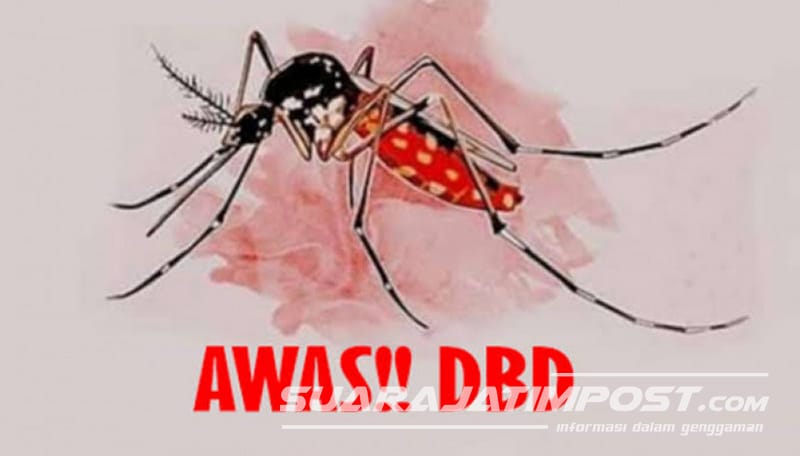Banyuwangi, SJP – Cases of dengue hemorrhagic fever (DHF) in Banyuwangi are still raging. From January to June 2023, a total of 220 residents have been infected. Four of them died.
Acting Head of the Health Service Amir Hidayat said the public must be more vigilant about the transmission of diseases caused by the bite of the Aedes Aegypti mosquito.
Reflecting on 2022, the number of dengue cases in Banyuwangi is quite extreme. The figure reached 560 cases with 12 deaths.
“In 2023 there were four cases of death. Two occurred in March and two occurred in June,” said Amir, Friday (21/7/2023).
The current weather cycle is erratic. This situation increases the chances of the Aedes Aegypti mosquito breeding.
“During the rainy season there is drought, while during the dry season it turns out there is still rain. These conditions make the Aedes aegypti mosquito breed very rapidly,” he explained.
Amir said the highest case was in Banyuwangi District. Second in Kalipuro and third in Rogojampi.
“The area is actually an urban area and has minimal water absorption. Resulting in puddles. Where puddles are an effective place for mosquitoes to breed,” he said.
Amir asked the public to improve their healthy lifestyle and prevention efforts. Then increase the PSN (Mosquito Nest Eradication) movement.
Such as prevention by means of 3M, namely draining, burying and disposing of used goods that may become breeding grounds for the Aedes Aegypti mosquito.
The Health Office hopes that people will not only rely on fogging as a step to eradicate DHF.
“The Aedes Aegypti mosquito will multiply quickly if the community’s PSN is low. The 3M movement must be routinely carried out at least once a week. We provide abatement that can be collected at the nearest health center and it’s free,” he said.
Reporter: Mohammad Ikhwan
Publisher: Doi Nuri
Tags
You’re Reading:
2023-07-21 15:11:36
#Mid #Banyuwangi #Residents #Infected #DHF #Died

